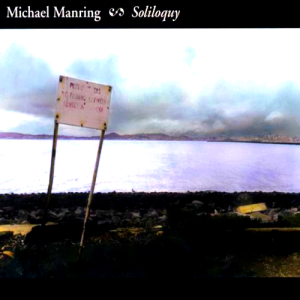It’s often said that by limiting your possibilities to only those that exist inside the box, as opposed to thinking outside the box, you are actually required to use much more creativity. This may seem counterintuitive; since the days of grade school we have been taught that thinking outside the box is the key to unlocking our true potential. Now before we continue any further, let me first just say that I am by no means devaluing out-of-the-box cognition. It is a wonderful and incredibly useful method, useful in just about any scenario life throws at you. That being said, sometimes we overlook the significance of what’s already inside the box in favor of flashier, more appealing solutions.
/%20Alright alright, enough with the box metaphor already! Isn’t this a blog for music? I hear you, let’s move on. The purpose of that whole long-winded introduction was to bring us to today’s main event: Michael Manring, a perfect example of a musician who uses the confines of the box to his advantage – the “box” in this situation being the bass guitar. As L. Pierce Carson from the Napa Valley Register puts it, “Michael Manring can do more with a bass than even the most creative individual could imagine.” See? The box metaphor worked out after all.
So by now you may be wondering what exactly it is Manring can do with a bass. If you can imagine what a man like Jon Gomm does on the acoustic guitar, that’s essentially what Manring does. On his 2005 release Soliloquy, he uses nothing but the bass guitar itself, yet somehow manages to convey richer musical and timbral diversity than most other artists with full-scale productions. He does not represent the standard definition of a bass virtuoso; he pushes through such boundaries to create an entirely new and unique concept of solo bass technique.
As a former student of the legendary Jaco Pastorius, Manring implements a remarkably innovative approach to the bass guitar that incorporates percussive finger picking, complex polyrhythms, and alternate tunings, which frequently involve him retuning the bass during the performance of a song. He plays a custom bass, named the Zon Hyperbass, which was personally developed in conjunction with instrument builder Joseph Zon. This specialized instrument allows for instantaneous tuning changes by using a system of tiny levers and a custom bridge.
Stylistically, he avoids all types of genre classifications. He has frequently been lumped in under the “New Age” label as a result of his long association with Windham Hill Records, a well-known label for new age and acoustic folk music that had its prime back in the 1980s and ’90s. Regardless, it is impossible to place Manring under a single banner; his influences are multitudinous, and so are the characteristics of his own eclectic brand of music.
The album starts off strong with “Helios,” the opening number. Within the first few seconds of music, we’ve already figured out that this guy is a maestro when it comes to slap bass technique and utilizing string harmonics. Although there are plenty of other bassists who have mastered such skills, none can match Manring’s melodicism. The vast range of timbres that he evokes from his revered instrument fill up the entire sonic spectrum, essentially turning him into a rare breed of the one-man band.
Perhaps the most awe-inspiring element of his music is its pure emotional content. With songs like “I Left America,” “Selene,” and “Come With Me, My Love,” we see Manring through a transparent filter. The perpetual motion of the channel created by his music leads us straight to his heart, and we are privileged to be granted access as quiet observers to such a sacred space.
Listen to Soliloquy if you would like to hear how far a single man can push the boundaries of music. Listen to this album if you find satisfaction in the warmth of a bass guitar extended to its full potential, or likewise if you find it hard to believe that such an instrument can be so expansive. Lend your ear to Michael Manring if you believe in the power of sincerity of self-expression transmitted through music, one of the most powerful forms of communication. You will not regret this one, I promise you.
